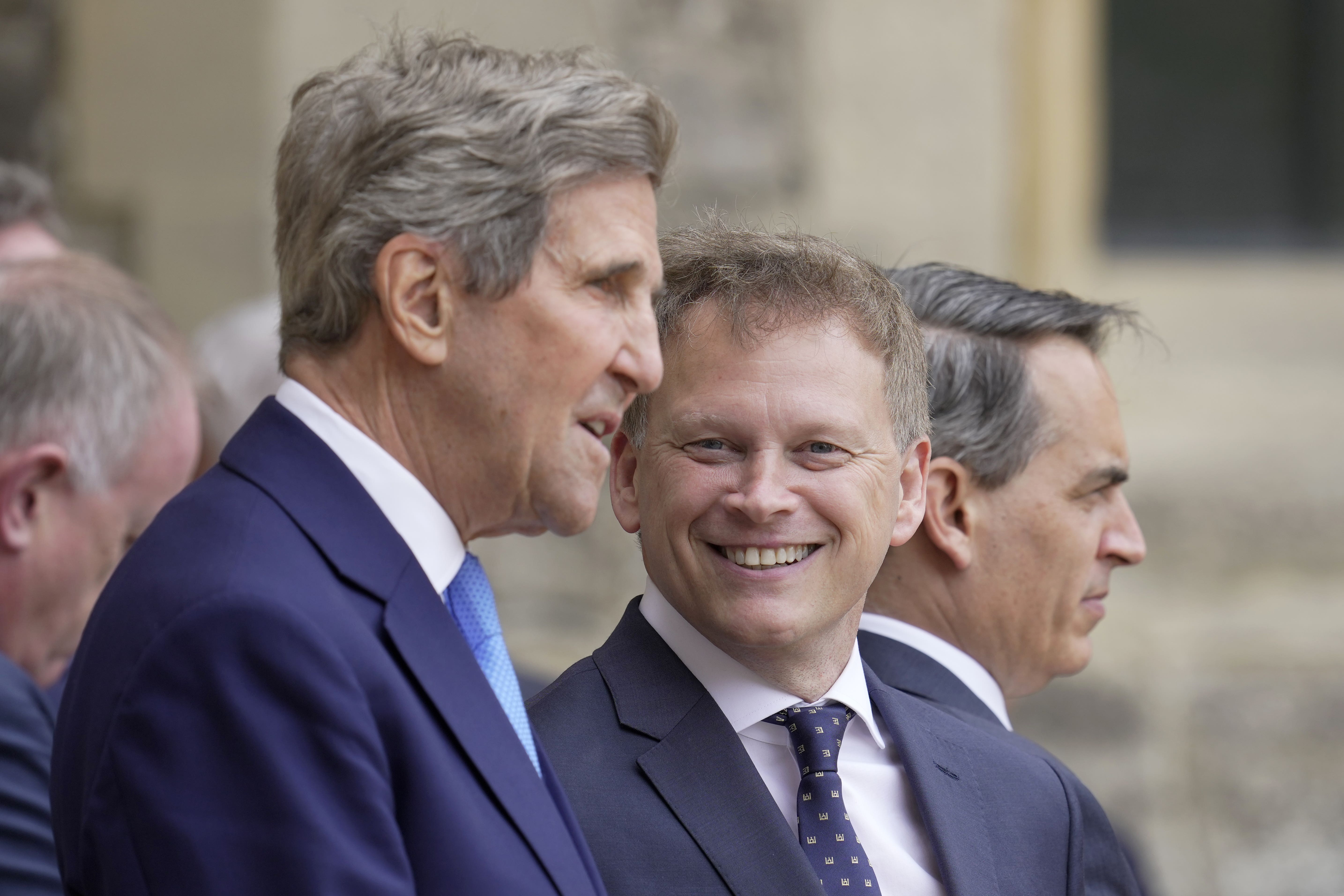Shapps says ‘difficult decisions’ to be made on pace of net zero commitments
The Energy Secretary warned he would be aiming to avoid putting ‘people under the cosh’ with the pace at which green policies are introduced.

Your support helps us to tell the story
From reproductive rights to climate change to Big Tech, The Independent is on the ground when the story is developing. Whether it's investigating the financials of Elon Musk's pro-Trump PAC or producing our latest documentary, 'The A Word', which shines a light on the American women fighting for reproductive rights, we know how important it is to parse out the facts from the messaging.
At such a critical moment in US history, we need reporters on the ground. Your donation allows us to keep sending journalists to speak to both sides of the story.
The Independent is trusted by Americans across the entire political spectrum. And unlike many other quality news outlets, we choose not to lock Americans out of our reporting and analysis with paywalls. We believe quality journalism should be available to everyone, paid for by those who can afford it.
Your support makes all the difference.Grant Shapps has said the Government needs to “weigh up difficult decisions” in approaching its commitment to phase out petrol and diesel cars by 2030.
The Energy Secretary warned he would be aiming to avoid putting “people under the cosh” with the pace at which green policies are introduced.
Speaking at a press gallery lunch in Parliament, the minister also refused to rule out a leadership bid, saying “who knows what will happen in the future.”
There are many benefits to getting there but I want to make sure we get there in a way that is not putting people under the cosh
Asked about a recent report from the Government’s own climate advisers which found a lack of progress on reaching net zero targets, Mr Shapps said he does not have to accept their recommendations.
The Government has committed to a ban on sales of new petrol and diesel cars from 2030 and a transition to fully zero-emissions vehicles by 2035.
Mr Shapps said on Thursday he was “pretty confident we will get there” but added: “The Government have to weigh up these difficult decisions between going faster and slower”.
He added: “We understand that we need to get to this. I also… understand that we need to do that in a way that does not cause families undue hardship. It can be very nice running an electric car, they’re quick, they’re clean, but we’ve got to see the second-hand market develop, we’ve got to see the prices converge, and there’s every reason why they should… There are many benefits to getting there but I want to make sure we get there in a way that is not putting people under the cosh.”
He said he was “hugely grateful” for the work of the Climate Change Committee (CCC) – the independent body which advises Government on the environment – but that their recommendations were not binding.
The minister also suggested that hydrogen may not be the answer to removing carbon emissions from domestic heating networks.
He said it was “unlikely” such an energy system, which was being considered as an alternative to natural gas, would be used in all homes.
Downing Street said “final conclusions” have not been drawn but that it was right for Government to consider “all the options” for people to heat their homes.
It comes after the CCC’s latest progress report described the Government’s efforts to scale up action towards reaching net zero as “worryingly slow,” and planned trials of hydrogen heating were scuppered by local protests earlier this week.
Mr Shapps later appeared to hint that he may throw his hat into the ring for the Tory leadership in the future when pressed on whether he still has ambitions for the top job.
“Who knows what happens in the future. All I know is we have wisdom and experience to guide the way for this country which is why I think that now, that person is Rishi Sunak,” he said.
Elsewhere, Mr Shapps echoed Foreign Secretary James Cleverly’s cautious tone on China, saying he did not believe in “exclud(ing) them” but in taking a hardline stance where appropriate.
But he also likened Beijing to the British Empire, suggesting it wants to operate under its own “world order”.
“They do want to change the world, to operate under their world order. That is no surprise, we did that when we had an empire, the Americans have done that, the Dutch did it before us. That’s the way large economies and empires operate,” he said.